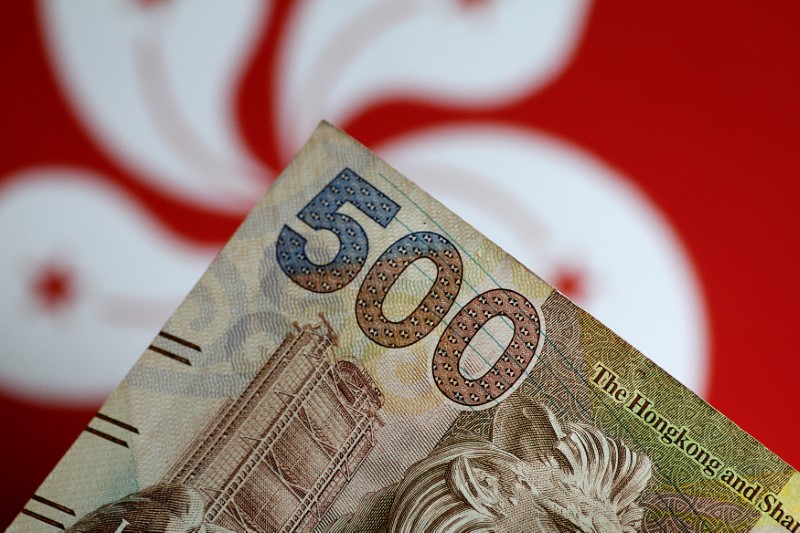(Bloomberg) -- A measure of Hong Kong’s interbank liquidity may need to drop further to help the local currency recover, even though the gauge has already slumped nearly 60% since May.
The one-month Hong Kong interbank offered rate, or Hibor, has risen to a succession of two-year highs since June as the Hong Kong Monetary Authority has drained cash from the financial system. Still, one-month Hibor lags behind its six-month peer by about 150 basis points, with the spread between the two being near the widest since October 1998.
The divergence means the HKMA needs to drain even more cash to push local rates high enough to prevent outflows, and offset the attraction of higher US yields driven by Federal Reserve interest-rate hikes. As things stand, traders are only too happy to short the Hong Kong dollar versus its US peer.
“The very wide spread suggests Hong Kong dollar liquidity is very flush at the moment and its aggregate balance is still very large,” said Ju Wang, head of greater China foreign-exchange and rates strategy at BNP Paribas in Hong Kong. “Considering how steep and short this Federal Reserve cycle is, the market may try to front run, and we have seen some expectation in the market looking for higher one-month Hibor.”
The HKMA has purchased HK$208.6 billion ($26.6 billion) of local currency since May 11, more than halving the aggregate balance of the currency in the financial system to HK$129.29 billion. Goldman Sachs. sees more upward pressure on Hibor when the aggregate balance falls below HK$130 billion, while Mizuho Bank Ltd. puts that figure closer to HK$100 billion.
Falling Balance
The aggregate balance fell to HK$54 billion at the peak of the Fed’s 2018 rate-hike cycle, before the currency moved away from the weak-end of its trading band, BNP Paribas’ Wang said. “Judging from the current market pricing, this may be an early 2023 event” for the local currency, she said.
Hong Kong’s dollar has traded near the weak end of its allowed trading band of 7.75-to-7.85 to the greenback since May. The currency was at 7.8497 at 5:15 p.m. local time Thursday. Six-month Hibor rose four basis points to 2.95% on Thursday while the one-month rate climbed 13 basis points to 1.43%.
While the short-end gauge is a reflection of abundant liquidity, the long-end indicates Fed hike expectations.
A sustained increase in one-month Hibor -- the reference rate for Hong Kong mortgage loans -- may weigh on the city’s economic recovery. Economists predict the city’s economy may contract for the third time in four years in 2022 due to Covid restrictions and a downturn in trade.
The Hong Kong dollar interest rate will “gradually rise,” reducing fund outflows, Financial Secretary Paul Chan said last month, while defending the linked-exchange-rate system. As rates increase, the mortgage repayment burden on property owners will inevitably increase, he said, adding that property prices have largely remained stable.
©2022 Bloomberg L.P.
